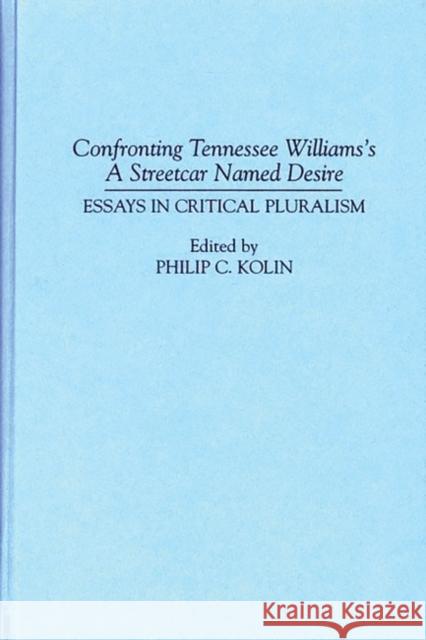Confronting Tennessee Williams's a Streetcar Named Desire: Essays in Critical Pluralism » książka
Confronting Tennessee Williams's a Streetcar Named Desire: Essays in Critical Pluralism
ISBN-13: 9780313266812 / Angielski / Twarda / 1992 / 272 str.
Confronting Tennessee Williams's a Streetcar Named Desire: Essays in Critical Pluralism
ISBN-13: 9780313266812 / Angielski / Twarda / 1992 / 272 str.
(netto: 413,95 VAT: 5%)
Najniższa cena z 30 dni: 431,97
ok. 30 dni roboczych
Dostawa w 2026 r.
Darmowa dostawa!
Fifteen distinguished scholars contribute original essays that analyze A Streetcar Named Desire, one of the most significant plays in modern theatre, from various critical or cultural stances, methods, or modalities. Represented as individual points of view or touched upon in the analysis are the theories of Lacan and Foucault and the tenets of Marxism; the approaches of Feminism, Reader Response Criticism, Deconstructionism, Chaos and Anti-Chaos Theory, Translation Theory, Formalism, Mythology, Perception Theory, and Gender Theory; and the perceptions of Popular Culture, Film History and Theory, Southern Letters, and assorted cultural and regional studies. The volume introduction charts the course of Streetcar criticism from its inception to the present.Each essay begins by articulating the theoretical principles and methods behind the critical approach pursued, then applies these to readings from Streetcar, utilizing and documenting relevant major research. Insightful and challenging, the readings, individually and collectively, advance the study of the play and Tennessee Williams's canon and reputation generally. Each essay offers a fresh, provocative view of a play that has long been discussed in simplistic and dichotomized terms: Blanche as victim/Stanley as predator; Streetcar as a play about a failed southern belle meeting a brutish Pole; or Streetcar as a work of Southern literature. Viewing the play through the lenses of cultural and critical pluralism, the contributors open up the script and expand our awareness of the problems and possibilities offered by this great modern classic.











